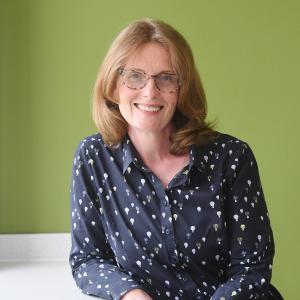Elle Cass
Head of Strategic Built Environment Growth at SLR Consulting
Elle Cass is the Head of Strategic Built Environment Growth at SLR Consulting, a firm specialising in sustainability consulting. She is a passionate advocate for DEI initiatives in the sector, and here talks to us about the benefits that better representation brings, as well as the challenges we still face in our collective journey towards a more diverse, equitable and inclusive industry.
What does gender equality look like in the property sector?
“In property and planning, there are certainly more women around in a wider range of roles than there were 30 years ago, for sure. However, women are still unrepresented in senior leadership positions and in the boardroom. We have all heard the mantra that men apply for a job when they meet only 60% of the qualifications, but women apply only if they meet 100% of them. This has often led to the argument that women need to have more faith in themselves. Many initiatives, as a consequence, continue to focus on what women need to do rather than on some of the structural and decision-making reasons for this continuing underrepresentation. A fundamental issue remains the propensity to recruit in our own image, be it conscious or unconscious. Thus, more discrete and direct action is required to address this and to ensure that, ultimately, we have the best, most able and truly representative leadership teams to steer our businesses.
“Our thinking and decision-making needs to embrace diversity, recognising the opportunity for challenge, innovation and disruption which more diverse (and representative) leadership teams can deliver.
“More diverse, equitable and inclusive leadership will also ultimately translate into better and more responsive development outcomes which deliver development which responds to societies needs. This will help us build better new places and address the historic mistakes and wrongs of the past.
“What is concerning is that we have made very little progress in terms of gender equality at the delivery end of the property industry, particularly in our trades workforce and from a recent trip into a local school, it seems that our systems for encouraging more girls to consider these types of careers are still failing. I was invited into an engineering department at a local school, into a class which we would have called CDT, and there was one girl in the class. I was the only girl in the class 35 years ago, and it was quite disheartening to go into a school and see that that was exactly the same situation today. We need to be highlighting the wide range of jobs and options available across the property and planning industry. This will also help us to address our skills shortages in the medium term."
Your team has been recognised for its work in the arena of equity, diversity and inclusion. What do you attribute this success to?
“First of all, I think it’s the fact that we recruit the best people for the job – my team is made up of highly talented individuals from a wide range of backgrounds because SLR firmly believes that broader representation makes for better decision-making.
“That’s because diversity means that you have a pool of different life experiences, which then shapes the way that people make their decisions. This is crucial in planning, as your own lived experience of the built environment can inform the design and the use of space.
“One example of this principle in action is the many initiatives we are currently seeing that are aimed at girls and women, examining why they don’t feel safe in certain spaces. We have known these issues for a long time, but now – thanks to the greater representation of women in the industry – we are actively addressing these problems in the built environment.
“My hope is that the transition to getting more women in boardrooms and achieving better representation of all groups across the industry’s management structures will be much quicker in the next 30 years than it has been during my 30 years in the industry...”
To read more about Elle and her take on the challenges facing the industry – as well as her proposed solutions to these – keep your eyes peeled for our full report.




